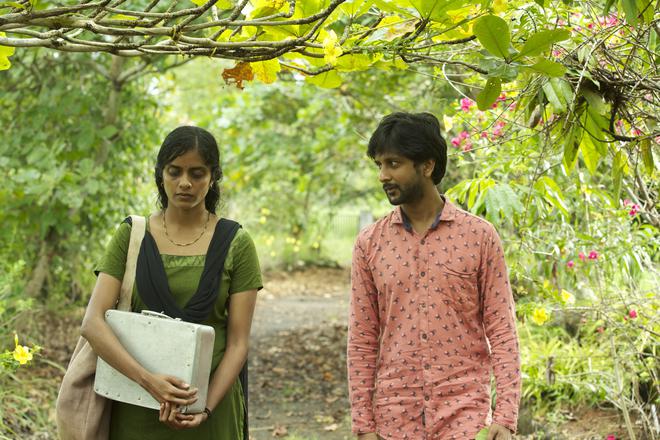Tara Ramanujan’s debut directorial Nishiddho (Forbidden) may have been judged the second best feature film at the 52nd Kerala State Film Awards and the best feature film at the Ottawa India Film Festival (OIFFES), but she confesses to thinking about how differently she could have done certain things. “People who were part of the film constantly tell me that the film is done and to stop thinking like this. But I still do it sometimes,” says Tara, laughing.
Nishiddho is a multi-layered film about two migrants - Chaavi and Rudra - from Tamil Nadu and West Bengal, respectively. The film explores the tenuous - not so much romantic - relationship between the two in the backdrop of Kochi. “They are both fish out of water, they don’t speak the same language, yet they manage to communicate with each other. Chaavi is Malayali-Tamil, but she is out of place here and Rudra, an idol maker-turned-construction worker from West Bengal, is an outsider. Their point of view is the same, yet different,” explains Tara over the phone from Thiruvananthapuram.

The film was shot in Kolkata, Madurai, and Perumbavur besides Kochi. Due to COVID-19 and lockdown restrictions, she says she hasn’t been able to show Kochi the way she would have liked to. “I wanted to show the Ernakulam railway station, with the crowd but could not. Same with Kolkata…fortunately the cinematographer was able to get shots of Durga Puja.”
It was shot in 2021, in 28 days, but it felt like a long time, she says. Nishiddho was screened at Bangalore International Film Festival (BIFFES) 2022 and the International Film Festival of Kerala (IFFK). “Getting picked for IFFK was a great feeling, it was overwhelming. The first time when people said good things about it, I thought it was a fluke but then when more people started appreciating it, I felt relieved it was not [a fluke].”
Had Kerala State Film Development Corporation (KSFDC) not chosen the script as part of its ‘Films Directed by Women’ project in 2021, Nishiddho would not have been made. This was one of the two chosen to encourage and empower women directors, the other was Mini IG’s Divorce.
“The story had been growing in my head since 2014-15. Three friends and I tried to make a film of it in 2018, but it didn’t work out and we gave up. I thought of making the screenplay a story or a book. That is when, in 2019, KSFDC called for scripts. By the time (in 2020) the script was chosen, COVID-19 had struck, and lockdown followed,” she says.
Kani Kusruti and Tanmay Dhanania make an impact as Chaavi and Rudra, two people negotiating their way in a city they call home. She is happy with how the actors have delivered. When she explained to her acquaintainses how she wanted Chaavi to be, an associate suggested Kani, “I was not familiar with her work at the time. I sent her the screenplay, she liked it and she was in. Tanmay was similarly suggested by another friend. He has very expressive eyes, there is something about him that led him to be Rudra.” This is not Tara’s first script, she had earlier scripted Samarpanam, a film directed by K Gopinathan.
In an earlier interview, she stated that she likes to explore the dark, seamy side of the human psyche. Does Nishiddho do that? “There is the suggestion of a darker side, the characters are shades of grey as human beings tend to be.”
So what is Nishiddho? “Things that we say or do. Are there certain things we don’t do because it is ethically wrong or because society tells us not to?”







